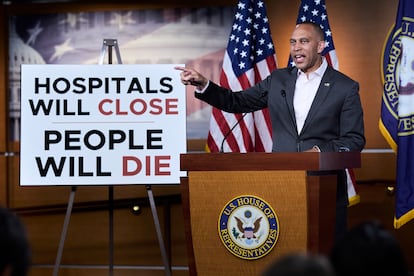NZ Experts Warn: Deep Cuts to Public Health Threaten System's Resilience - Are We Prepared?

Recent significant reductions in funding for public health initiatives are causing serious concern among New Zealand health experts. Mirroring trends observed in the United States, these cuts are leaving the system vulnerable and struggling to cope with existing challenges, let alone potential future crises. Experts fear a weakening of core capabilities, impacting everything from routine vaccinations to responding to serious disease outbreaks.
The parallels with the situation in the US, where the Trump administration enacted deep cuts to public health agencies, are striking. There, public health leaders described the system as being reduced to 'a shadow of what it once was,' and currently, the US is grappling with the deadliest measles outbreak since the 1990s. While New Zealand hasn't reached that stage, the potential for similar setbacks is growing.
What’s Being Cut and Why Does It Matter?
The cuts aren't just about headline-grabbing numbers; they represent a dismantling of vital infrastructure. Funding reductions have impacted areas like disease surveillance, immunisation programs, laboratory capacity, and public health workforce training. These are the bedrock upon which a robust public health system is built.
Consider the impact on disease surveillance. Reduced funding means fewer resources available to monitor and track the spread of infectious diseases, making it harder to detect and respond to outbreaks early on. Similarly, cuts to laboratory capacity can delay diagnosis and hinder efforts to identify and contain emerging threats.
The Measles Warning: A Stark Reminder
The current measles outbreak in the United States serves as a stark reminder of the consequences of neglecting public health. Measles is highly contagious and can be deadly, particularly for young children and those with weakened immune systems. The outbreak is directly linked to declining vaccination rates, fuelled in part by misinformation and a lack of access to immunisations.
While New Zealand has generally high vaccination rates, complacency is a dangerous enemy. Weakening the public health system makes it more vulnerable to preventable diseases like measles, and undermines efforts to maintain high coverage levels.
Beyond Outbreaks: Long-Term Impacts
The damage isn't limited to acute outbreaks. Underinvestment in public health has long-term consequences for overall population health and well-being. It can exacerbate existing health inequalities, disproportionately impacting vulnerable communities. It also hinders efforts to address chronic diseases and promote preventative health measures.
What Needs to Happen?
Experts are calling for a reversal of these cuts and a renewed commitment to investing in public health. This includes:
- Increased Funding: Prioritising public health funding in government budgets.
- Strengthening Workforce: Investing in training and recruitment to ensure a skilled and adequately staffed public health workforce.
- Improved Communication: Combating misinformation and promoting evidence-based health information.
- Community Engagement: Working closely with communities to build trust and address health disparities.
The health and safety of all New Zealanders depend on a strong and resilient public health system. Ignoring the warning signs could have devastating consequences.






